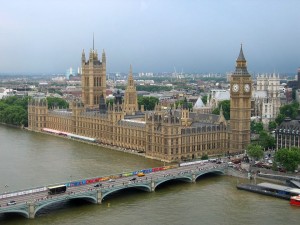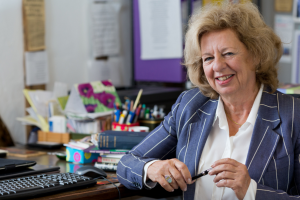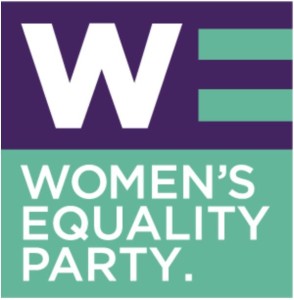As we proceed into a new realm of politics in 2016, with the Women’s Equality Party up and running, it is important to reflect back on the historical progression of women in politics and examine whether we can really achieve equality.
“It’s time to put parliament into special measures” – Sophie Walker, leader of UK Women’s Equality Party
As I sat in the cinema watching Suffragette, a brilliant film focused on the struggle of the early feminist movement for the right to vote for women, I began to get more and more angry. It highlighted how the Suffragettes weren’t just fighting for the right to vote but also for women to hold positions of power and decision-making, which is still lacking in the UK. The arguments used 100 years ago are still relevant today and the political empowerment of women remains a critical issue.
The fact of the matter is that we are not talking about domination; it’s about power-sharing. Women should have equal access and full participation in power structures and leadership in order to nurture sustainable and equal societies. Reflecting on the past, the Suffragettes were innovators and they drove forward change through their activism and campaigning and that is what we need to do now in 2016. The Women’s Equality Party are trying to take this step forward, choosing to form their own political party and to demand equality.
The 300 Group
The Women’s Liberation Movement (WLM) in the United Kingdom in the 1960’s and 70’s was extremely influential and led to the introduction of laws which provided greater social and economic equality for women. The WLM drew attention to the extremely low number of women in parliament, in 1970 there were only 26 female MPs out of a total of 650. In 1980 Lesley Abdela co-founded “The 300 Group” in order to campaign and lobby for equal representation of women in parliament and public office. The group aimed to fill less than half the number of seats in the House of Commons with women, totalling 300 seats.
Although we have moved on strides since 1970, there are still only 191 female MPs in the House of Commons today, a long way off the 300 mark. Lesley Abdela states that we only made it this far through quotas and special measures put in place to support women. She spoke in parliament and stated the following:
“All countries with over 30% women in parliament have introduced equalising strategies such as gender-balanced quotas as a ‘break-through’ (temporary) measure. In all these countries, women inside and outside political parties mobilised and campaigned for quotas. Women’s groups also provided training for women in political participation. Finally, the electoral system is some form of Proportional Representation.”
In an ideal world quotas would not be needed. However, candidate selections are still organised by men which blocks women and not the voters. We still have a long way to go in the UK and it is crucial that we keep the issue visible in the media and continue to lobby for quotas and special measures to reform the mistakes of the past.
What are quotas and are they the answer?
In the UK Female MPs make up 29% of the parliament and there are only 6% of MPs from minority or ethnic backgrounds. In order to achieve gender parity in the next 10 years, short-term immediate quotas are needed, which would cover the next two elections. The premise of quotas is that women must constitute a certain number or percentage of the members of a candidate list.
These quotas would mean that women would need to constitute two thirds of the candidates and I don’t think anyone would find it hard to find 325 brilliant women capable of becoming MPs. It is also important to highlight that throughout history there has been well-educated, elite, male quotas in place demonstrated by the fact that 25% of MPs have a private school background, in comparison to 7% of the average population.
There are also many other ways of ensuring that women are recruited and retained in political positions:
-
Lesley Abdela, co-founder of “The 300 Group” Job shares – allowing two people to share a position and to each work part-time on the role
- Twinning constituencies – a method where one male and one female candidate are chosen from neighbouring constituencies to guarantee equal representation.
- Proportional representation – these systems have been hailed as fairer as political parties receive seats in proportion to their electoral strength and no single part has a monopoly of power. This would not guarantee higher female representation but may facilitate female candidates and reduce disparity.
- 50:50 short lists – ensuring gender equality on party short lists can provide more female candidates with the opportunity to stand for election
- Addressing incumbency – incumbency effects are the advantages that elected representatives have over newcomers in getting re-elected, PR systems and 50:50 short lists can help to reduce this problem.
For more detailed information see the Fawcett Society’s briefing on “The impact of electoral systems on women’s political representation.” Fawcett is the UK’s leading charity for women’s equality and rights at home, at work and in public life.
“It’s time to put parliament into special measures”
The Women’s Equality Party (WE) was co-founded by author and journalist Catherine Mayer and broadcaster and author Sandi Toksvig in 2015. They decided that lobbying the government does not generate change as there is no electoral force behind it and that if you want something to happen you have to propose how you would make that happen. The WE is a non-partisan political party which is pushing for equal representation in politics, business, industry and throughout working life. The party maintains that equality for women isn’t a women’s issue but that when women fulfil their potential, everyone benefits.
The leader of the party, Sophie Walker, spoke at a conference I recently attended and stated that if you join the WE it sends a message to your political party that you prioritise equality. She described some of the key policies of the WE Party which include quotas for the Houses of Parliament, where she declared that the only way to get their agenda to the top is through threatening to take their votes away and that “it’s time to put parliament into special measures.” Another proposal is Government-funded childcare to be available for all children from the end of paid parental leave at nine months (funded through a single rate of pension tax relief). Sophie concluded that gender is just as important a constituency as geography.
Is political participation enough?
Achieving gender equality in political representation in numbers doesn’t automatically remove patriarchy and male domination or solve the problem of the wage gap and violence against women. It doesn’t mean you have feminist policies or a feminist voice. However, the Women’s Equality Party are trying to demonstrate that gender equality doesn’t just benefit women; it benefits the whole of society. If there are women in the power and decision-making positions in the UK Parliament, this should hopefully trickle down in society.
Gender equality in parliament would be the first step towards a more equal and fair society. As discussed previously, special measures and quotas are the only reasonable way of securing this outcome, rather than waiting to see if another 30 years will make a difference. The WEP have also carefully planned their approach, rather than aiming to become the next big political party they will pressure political parties to be more inclusive and demonstrate that the British public have a keen interest in equality.




![Solidarity with Polish Women: Abortion Rights in Poland – Odzyskać wybór: o prawach aborcyjnych w Polsce [EN/PL]](https://www.youngfeminist.eu/wp-content/uploads/2016/07/img-150x150.jpg)

![On slut-shaming – the case of Estonia – MEENUTAME: TOP 20 kõige kahjustavamat noortenõu Dr. Noormannilt* [EN/ET]](https://www.youngfeminist.eu/wp-content/uploads/2016/01/24534942415_3175234776_b-150x150.jpg)
Average Rating